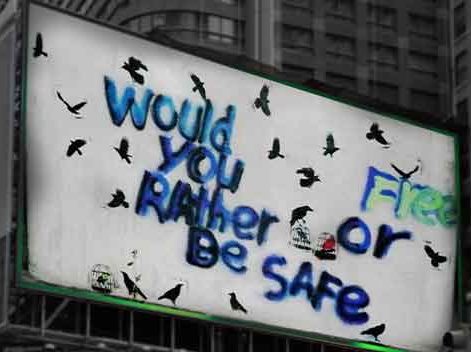
DEBUNKING THE ZERO-SUM GAME
We cannot strike a balance between personal freedom and public safety in Cyberspace, as in a “zero-sum game”.
It’s a “both or neither challenge” whose solution is paramount to protecting and enhancing human safety, freedom, democracy in the Digital and AI Age.
The Free and Safe in Cyberspace is a workshop and conference series conceived and organized by the Geneva-based Trustless Computing Association to promote its mission to radically increase the security, privacy, and democratic control of human communications, social networking, and AI, while retaining or increasing public safety.
Since 2015, 11 Editions have been held, once in New York, Iguazu, Berlin, Zürich, four times in Geneva and twice in Brussels. It has attract over 120 World-class speakers including academics, governmental officials, privacy activists, security agencies, and dozens of partners.
Every edition has been sharply focused on solving the “Four Challenges for Freedom and Safety in Cyberspace”, and progressively in deepening and widening a consensus around solutions to them in the form of new Trustless Computing Paradigms, the creation of a new Trustless Computing Certification Body and Seevik Net Initiative.
The Four Challenges for Freedom
and Safety in Cyberspace
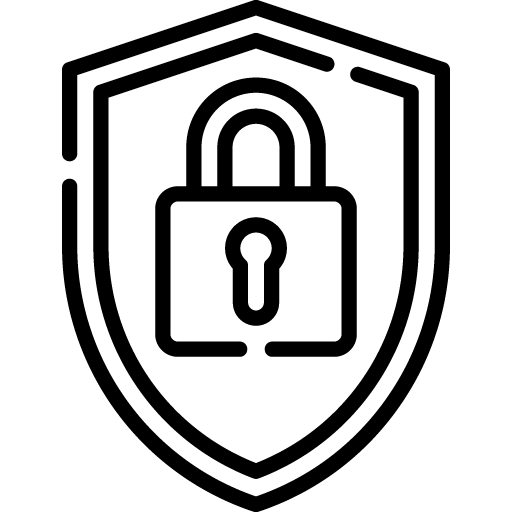
Challenge A
PERSONAL FREEDOM
How can we build IT for human communication and social networking systems, for sensitive non-classified computing, that ensure levels of privacy, security and democratic control that radically exceed state-of-the-art?
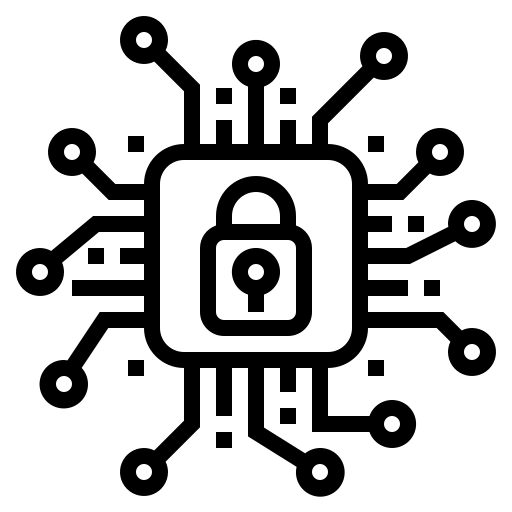
Challenge B
PERSONAL FREEDOM +
PUBLIC SAFETY
If we can solve Challenge A, how can we do so while (1) increasing the certainty, rapidity and integrity of legitimate lawful access requests, national and international, via procedural “in-person” mechanisms and (2) sufficiently limit grave and large scale risks of abuse of such access by anyone?
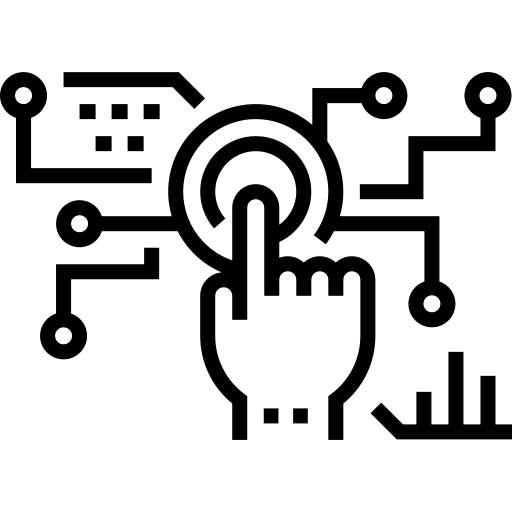
Challenge C
MEANINGFULLY SECURE AI
How IT systems and sub-systems that satisfy Challenge A and/or B, contribute to increase the security, privacy, transparency, safety, accountability, control and alignment of the most critical sub-systems of society-critical IT and advanced AI systems, such as social media, conversational AIs and critical infrastructures?
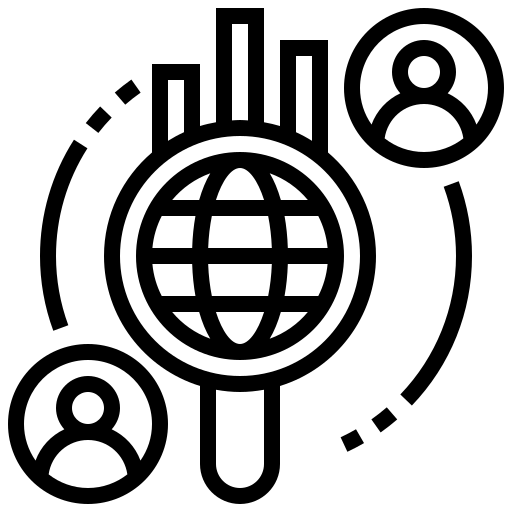
Challenge D
A GOVERNANCE BODY
FOR A, B, & C
What socio-technical paradigms and governance models should guide an on multi-governmental democratic governance structure that can sustainably certify and regulate IT systems that solve Challenge A, B and C?
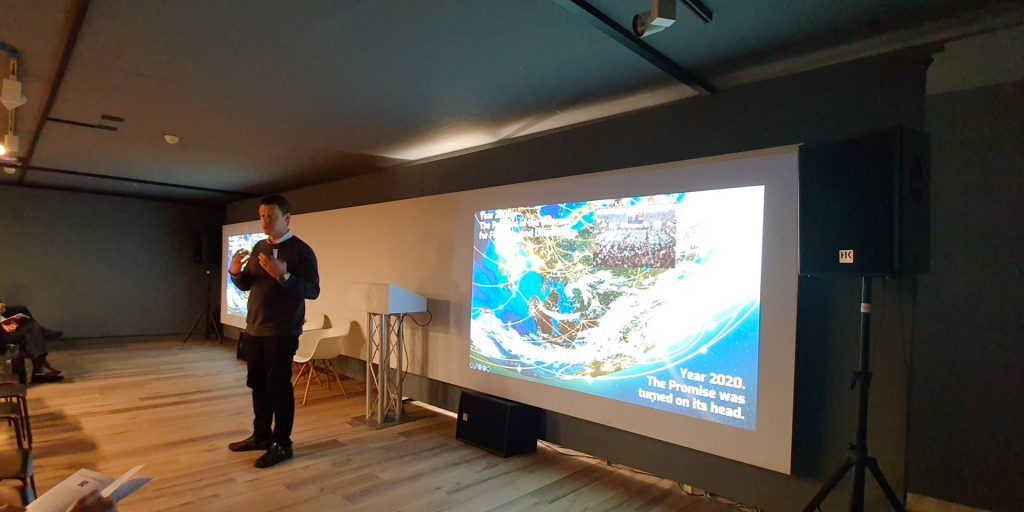
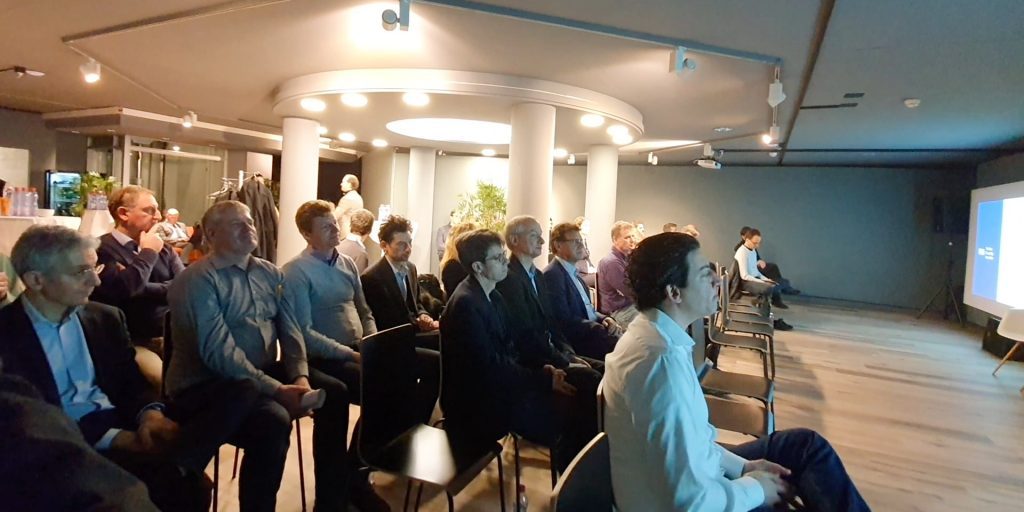
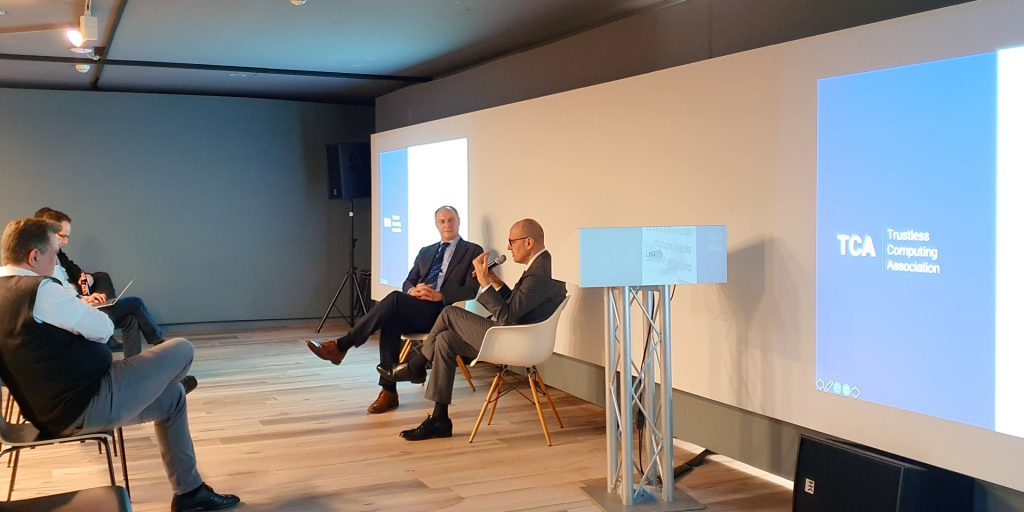
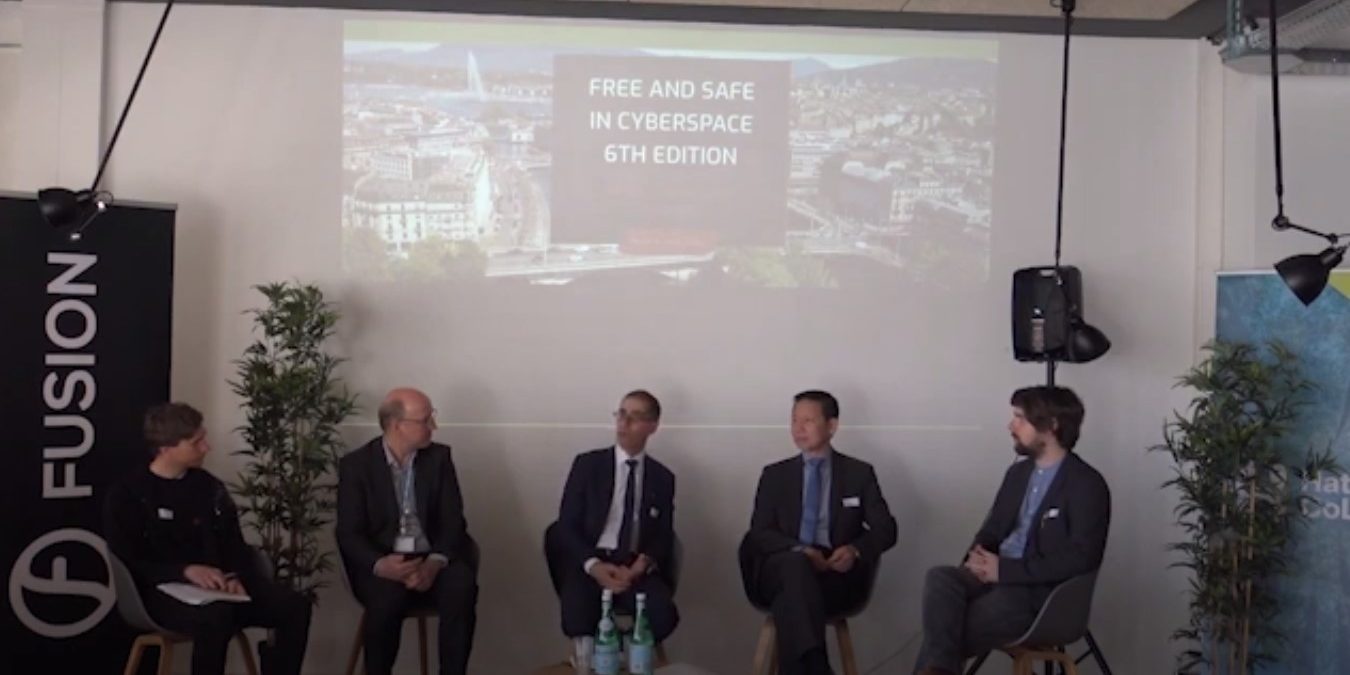
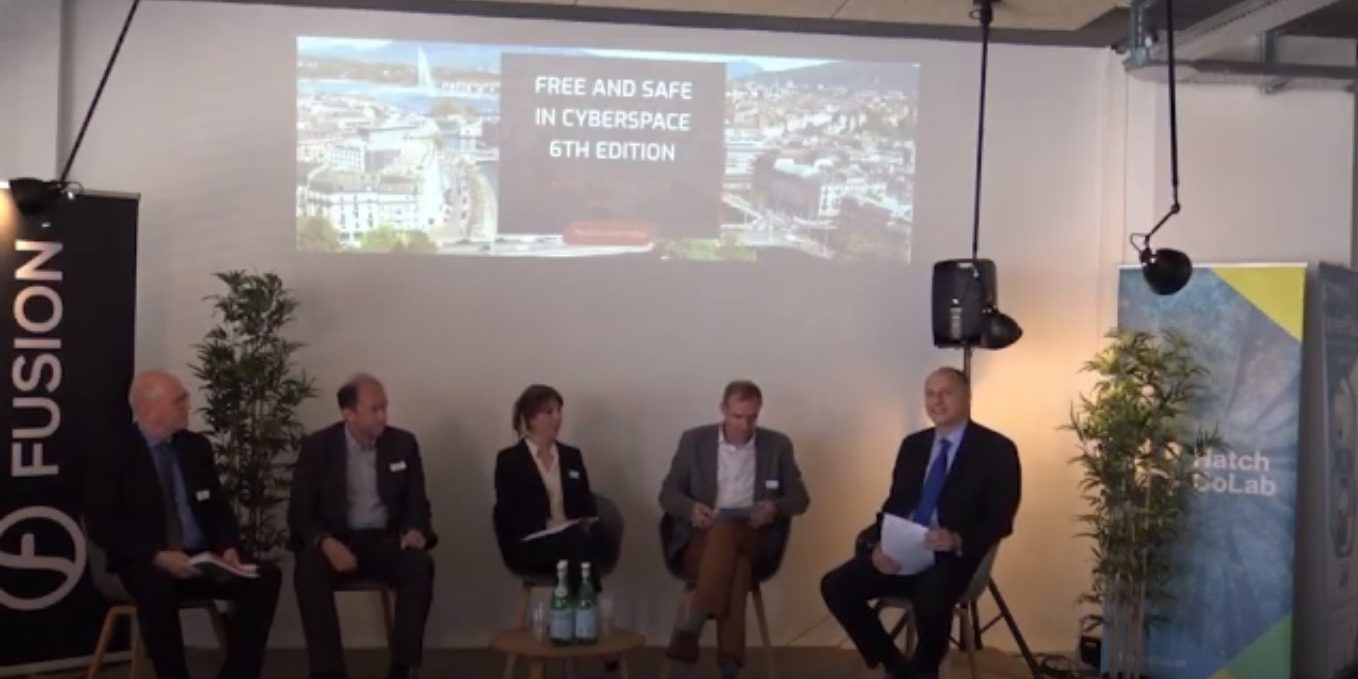
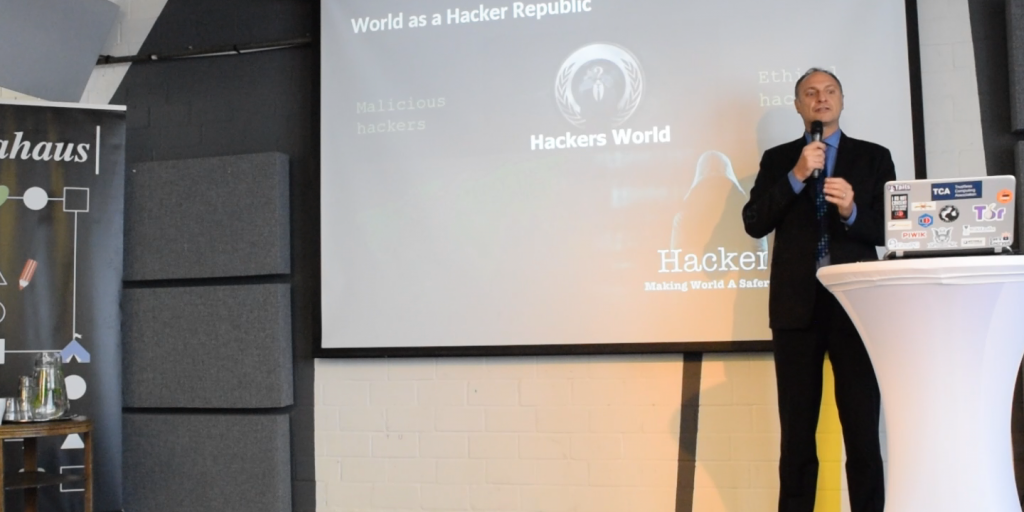
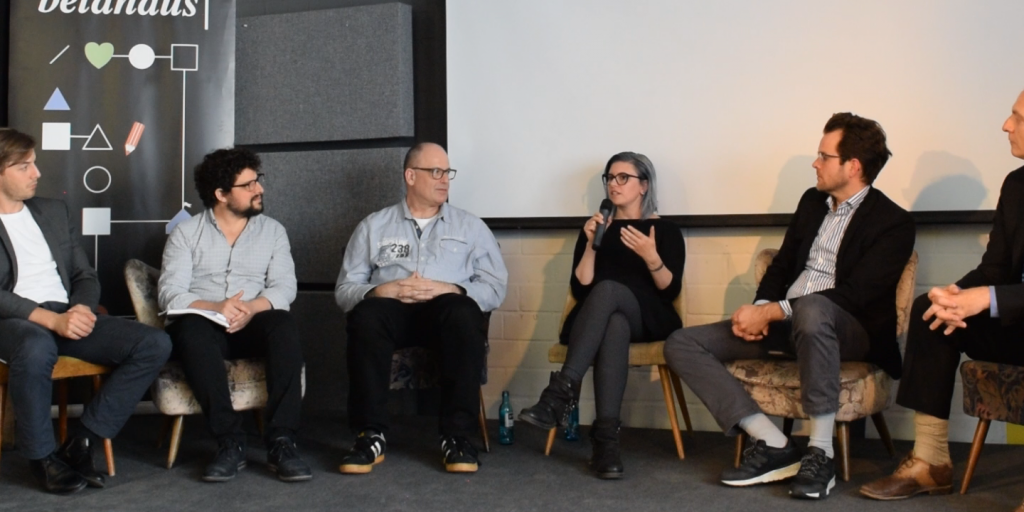
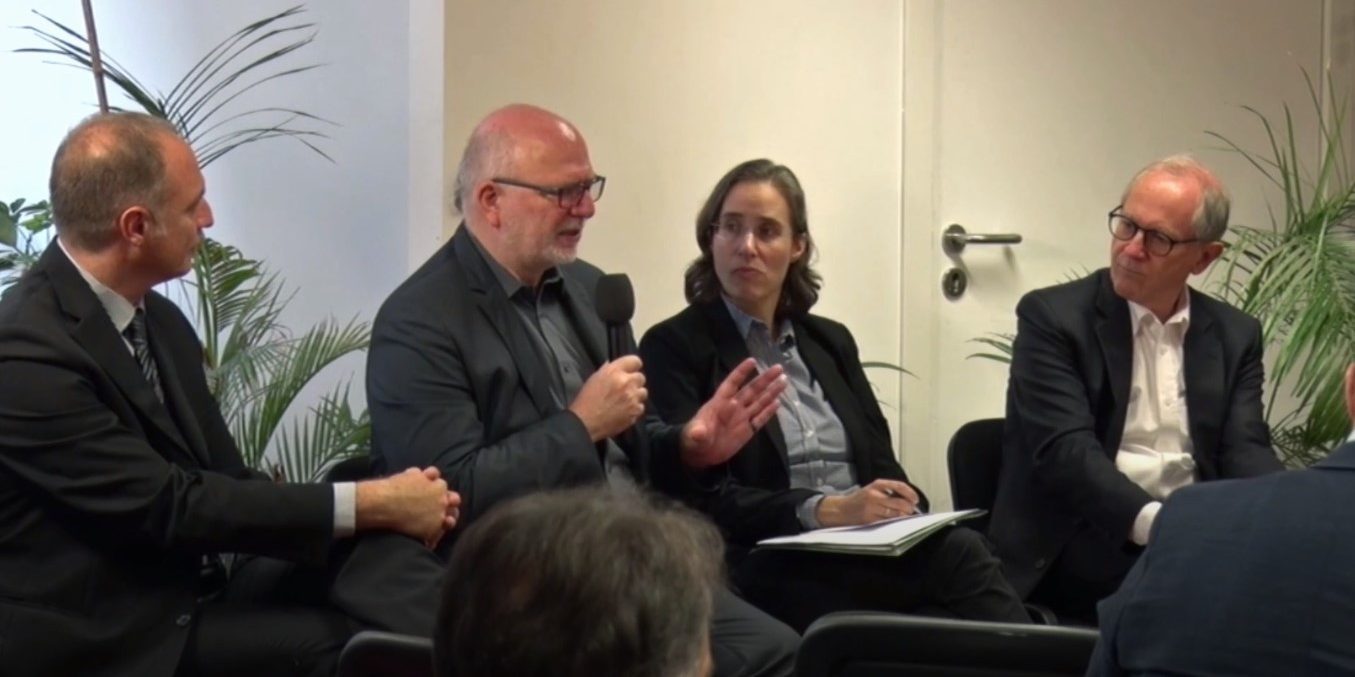
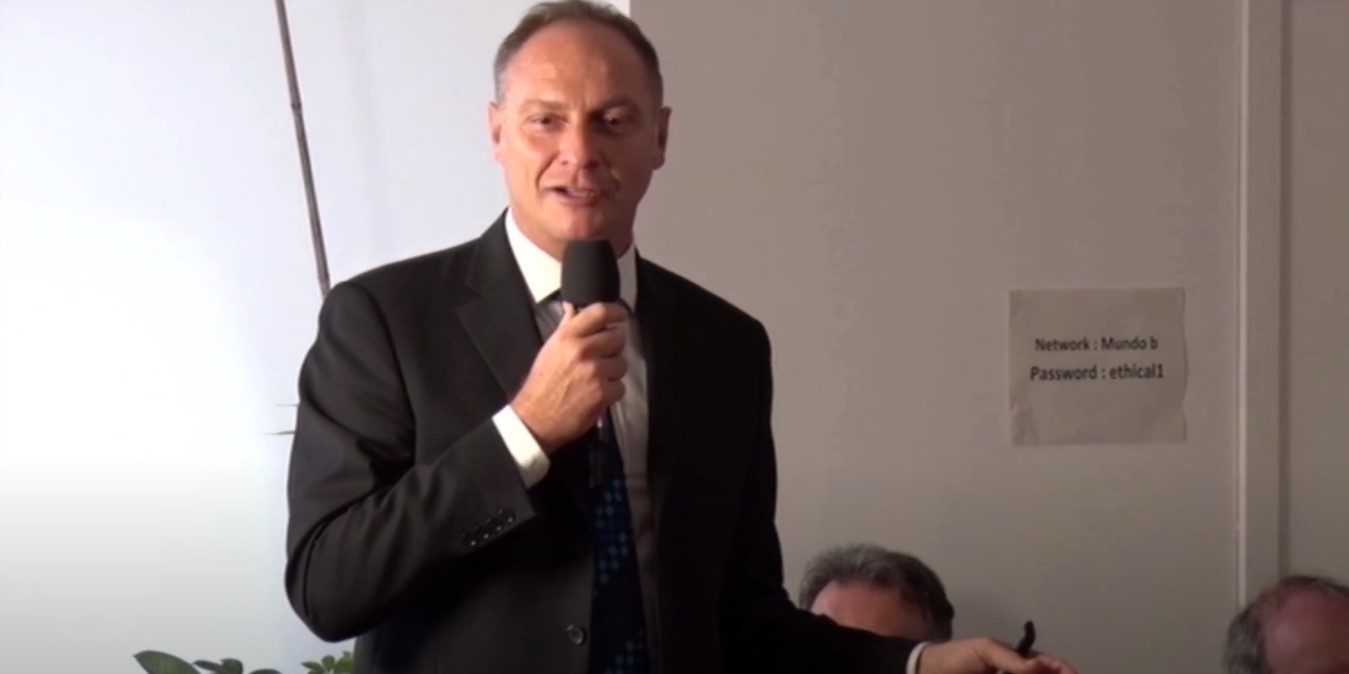
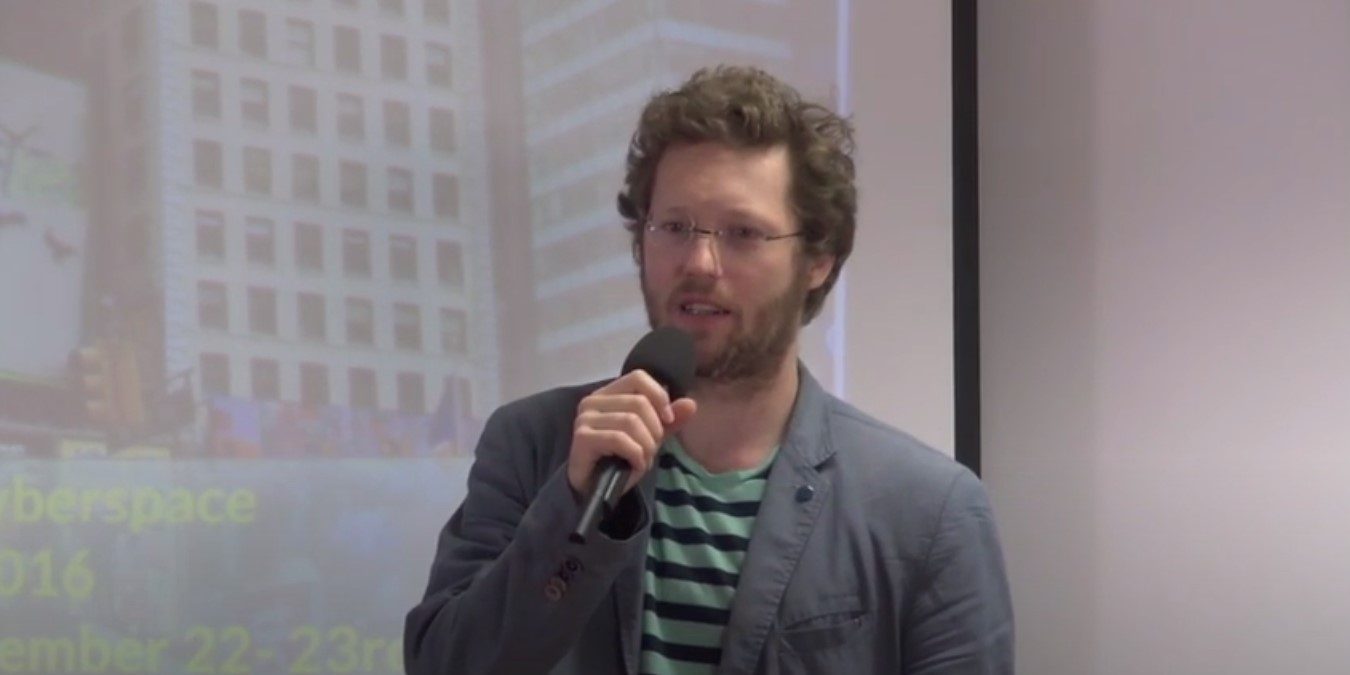
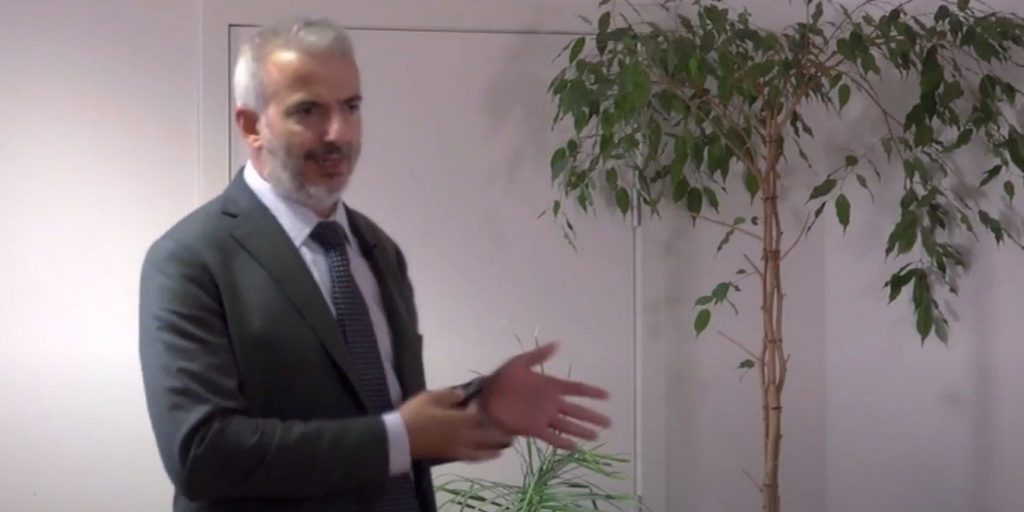
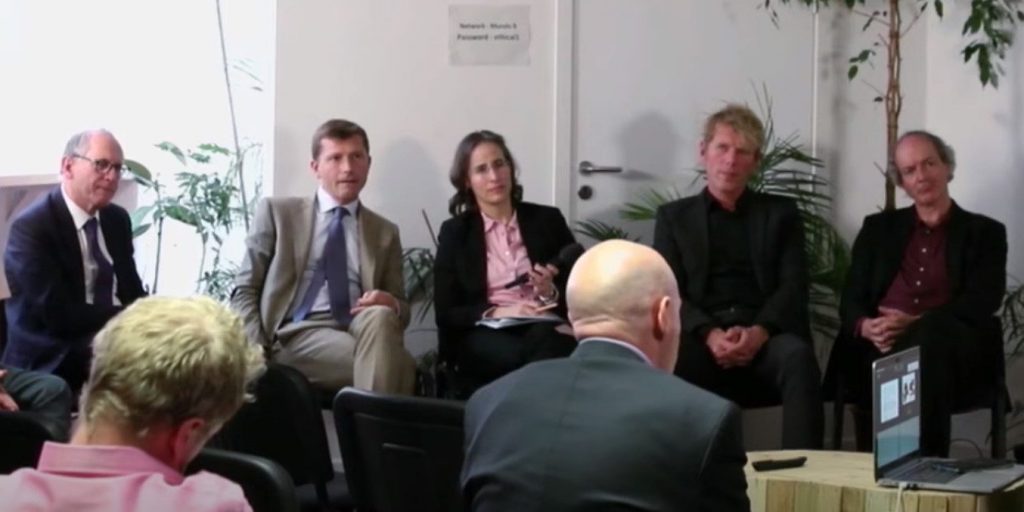
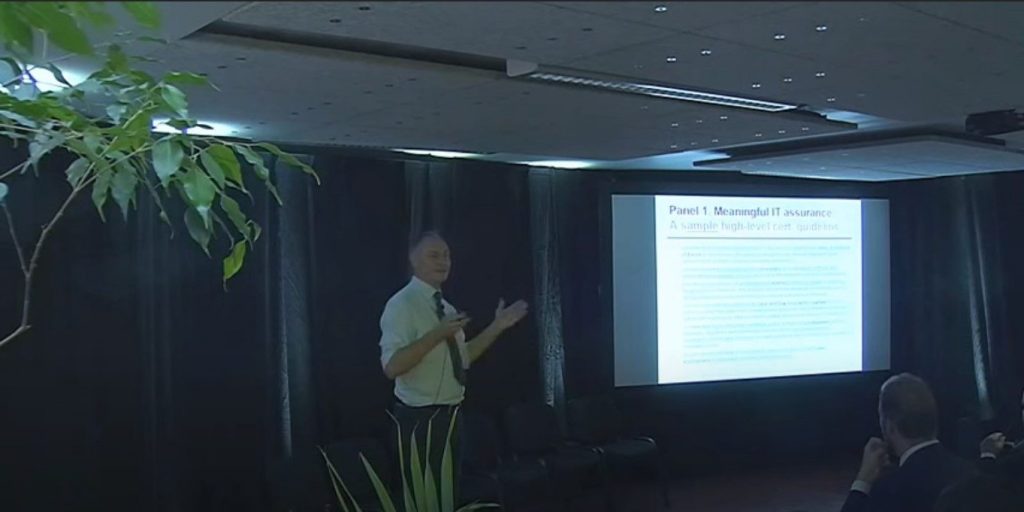
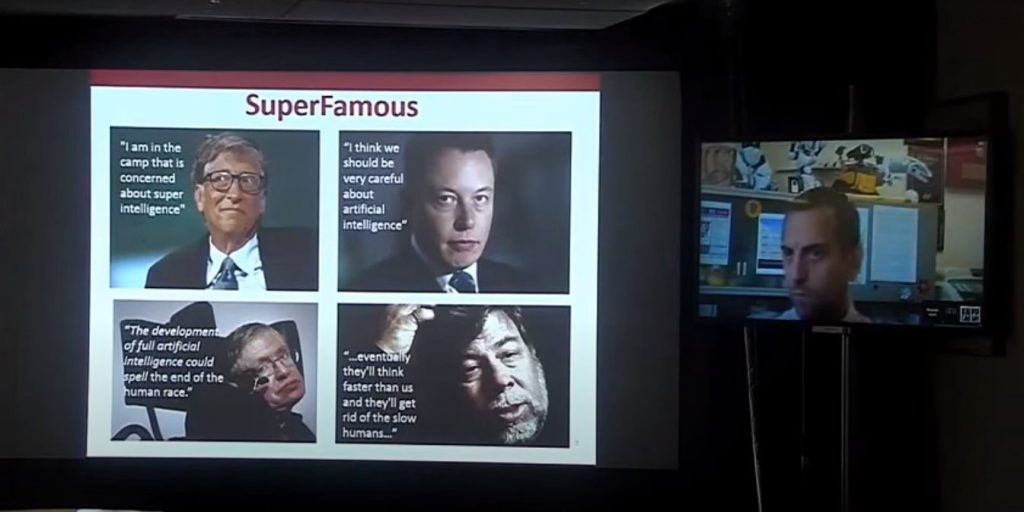
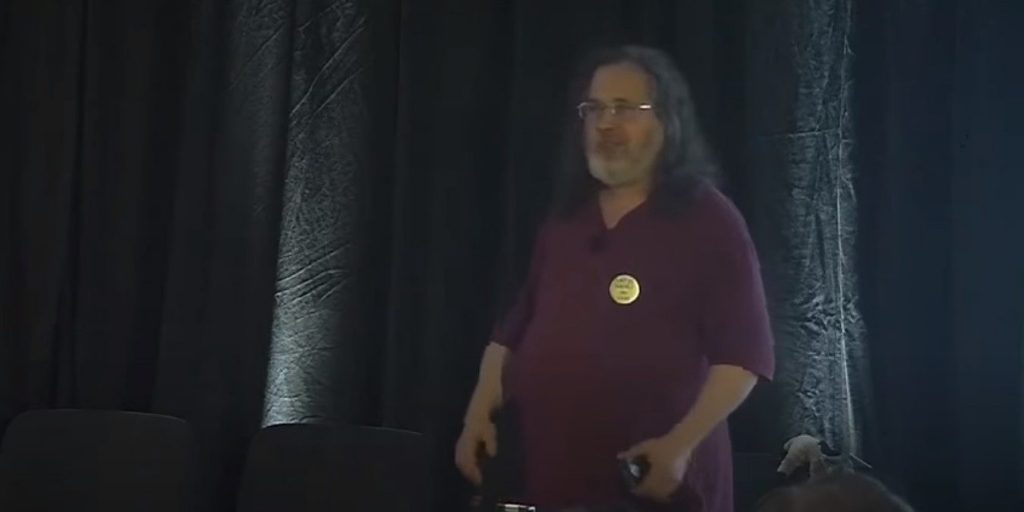
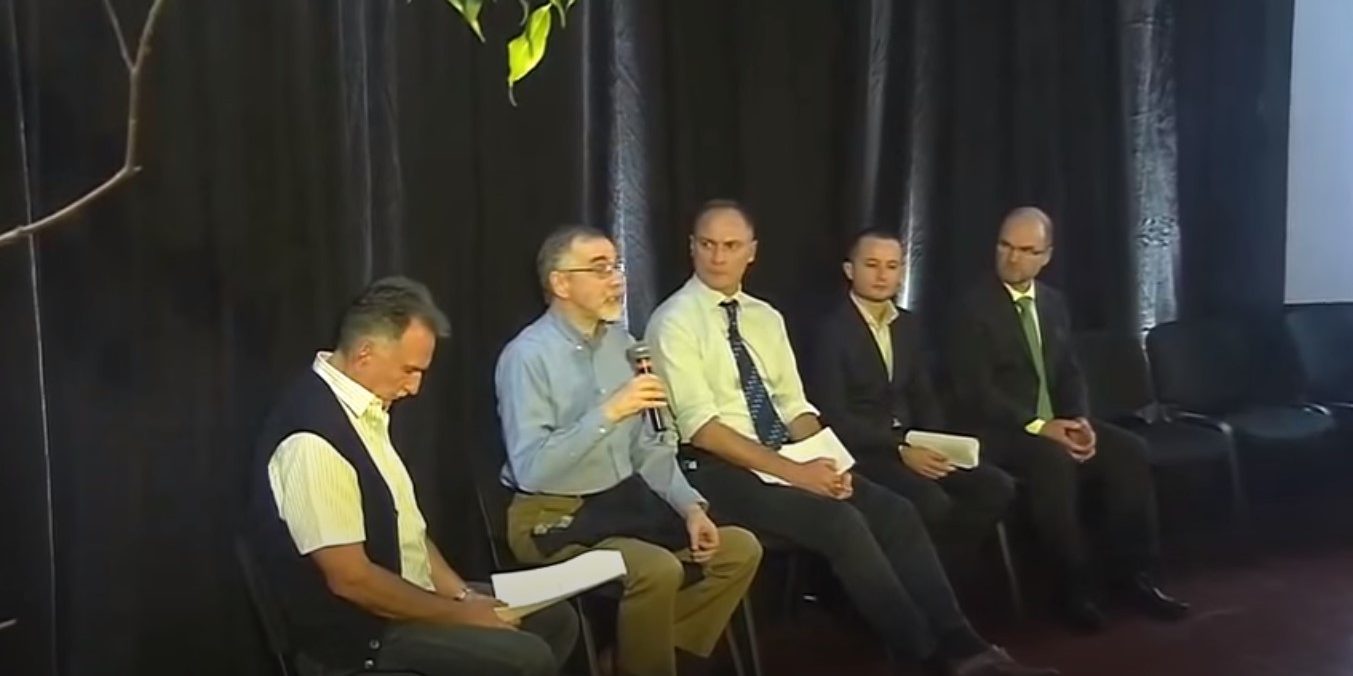
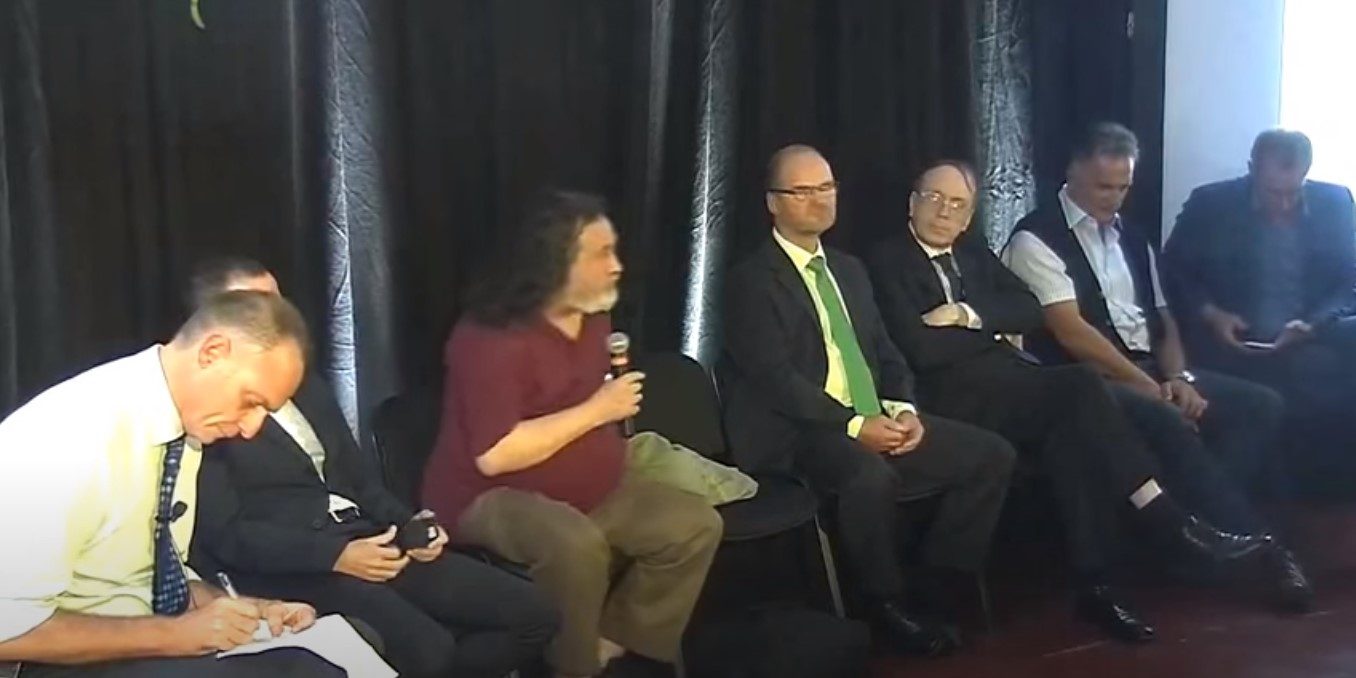
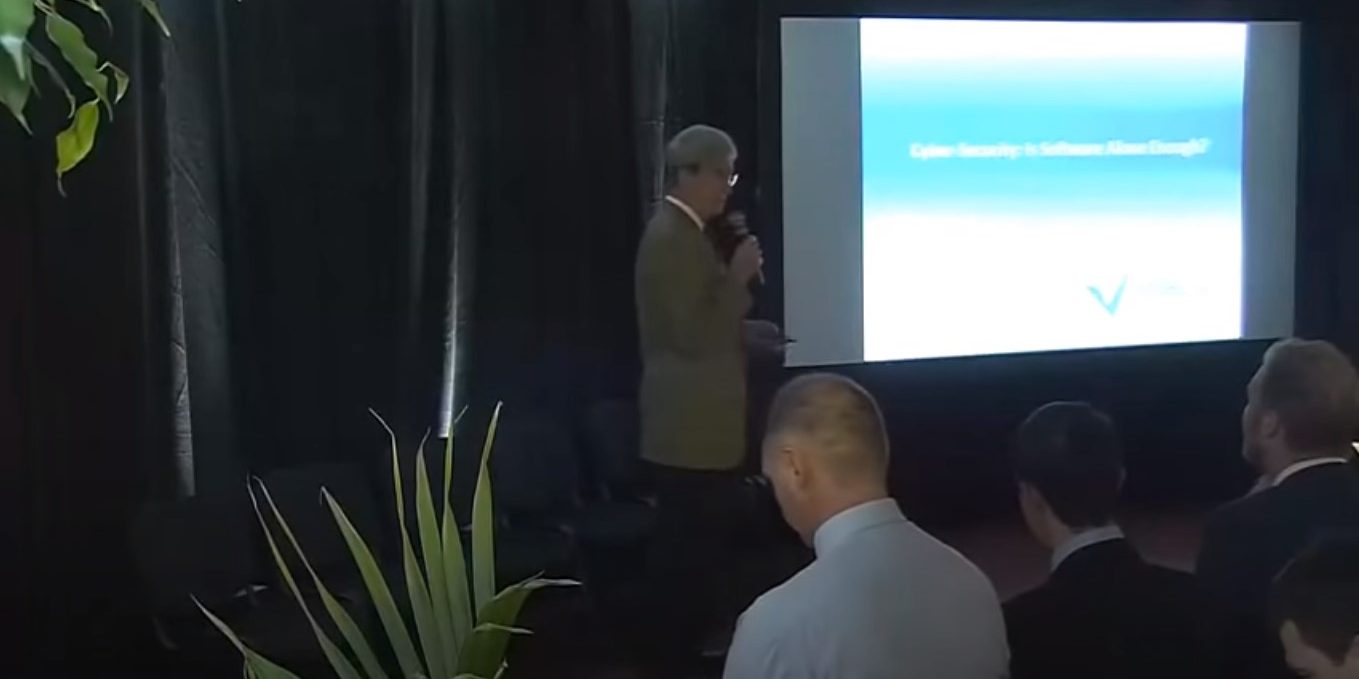
Some Speakers of Previous FSC editions
- Marco Obiso, Head of the Cybersecurity Division at the UN International Telecommunication Union
- Mika Lauhde, Head of Technology at the ICRC International Committee of the Red Cross. Formerly at Huawei, Nokia and security consultant to the Prime Minister of Finland.
- Wojciech Wiewiórowski, sitting European Data Protection Supervisor, the highest EU authority on data privacy.
- Nicholas Niggli, Deputy Secretary General at Republic and State of Geneva, Switzerland.
- Joe Cannataci, formerly, UN Special Rapporteur on the Right of Privacy. Professor at the Universities of Malta and Groningen.
- Reinhard Posch, Chief Information Officer of the Federal Republic of Austria (2001-2019). Formerly, Chairman of the Board of ENISA.
- Christopher Painter, formerly, the first Cyber Coordinator and Senior Director for Cyber Policy of the US National Security Council under Obama (2009-2011). And then Coordinator for Cyber Issues at the US State Department (2011-2017).
- Troels Oerting, Formerly Head of Global Centre for Cybersecurity of the World Economic Forum. Formerly Group Chief Information Security Officer (CISO) of Barclays Bank. Former Head of Intelligence of the Republic of Denmark.
- Michael Kleiner, Director of the Department of Economic Development, Directorate General for Economic Development, Research and Innovation, Republic and State of Geneva.
- Koen Maris, Head of Cybersecurity at PwC, Luxembourg. Formerly, CTO at ATOS and CSO at Telecom Luxembourg.
- Michael Sieber, Head of Information Superiority at the European Defence Agency (2012-2016). Now back in the Germany Department of Defense.
- Andreas Reisen, Head of IT Security Standardization Programs at Federal Ministry of the Interior of Germany.
- Paul Nemitz, Director of Union Citizenship at the EU Commission’s Directorate-General for Justice and Consumers.
- Timo Koster, Formerly, Ambassador-at-large for Security Policy & Cyber of the Republic of Netherland.
- Eileen Donahoe, Formerly, Director of Global Affairs for Human Rights Watch. Executive Director of the Global Digital Policy Incubator at Stanford University (GDPI).
- Max Schrems, world-renowned digital privacy and civil rights activist.based in Austria.
- Simone Halink, Co-chair of An Internet Safe and Secure Working Group of the Freedom Online Coalition, a group of 29 nations fostering “Internet freedom and protect fundamental human rights – free expression, association, assembly, and privacy online – worldwide“.
- Marcos Vinicius Mazoni, President of SERPRO, the principal internal IT and secure IT development agency of the Republic of Brazil.
- Roberto Gallo, CEO and founder KRYPTUS, President of the Brazilian Defense Industry Association.
- Rogério Winter, Liaison Officer of the Centro de Tecnologia da Informação Renato Archer of the Brazilian Army.
- Jan Philipp Albrecht, Former Vice-Chair of the Committee on Civil Liberties, Justice and Home Affairs (LIBE) of the EU Parliament. President of the Heinrich-Böll-Stiftung,
- Boris Taratine, Formerly Chief Cybersecurity Architect at Lloyds Banking Group. Previously Principal Security Architect at VISA. Magna-cum-laude PhD in Physics from San Petersburg University, Russian Federation.
- Andreas Wild, Former Executive Director at ECSEL JU.
- Caroline Portal, Chief Information Security Office of the Judiciary Department of the Republic and Canton of Geneva. Formerly, IT executive at luxury retailer Richemont.
- Nicolas Bürer, Managing Director at Digital Switzerland, the largest Swiss industry association of IT companies.
- Jean-Marc Rickli, Head of Global and Emerging Risks at the Geneva Centre for Security Policy.
- William R. Pace, Former Executive Director, World Federalist Movement and Institute for Global Policy (WFM-IGP).
- Daniele Archibugi, world-renowned expert in global governance and global constituent processes towards accountable global institutions. He taught at the universities of Sussex, Naples, Cambridge, Rome Sapienza, Rome LUISS, London School of Economics and Political Science, and Harvard.
- Camila Lopez Badra, Executive Director of Democracia Global. with the mission of foster a deep strengthening of global democracy.
- Achim Klabunde, Head of Sector IT Policy at European Data Protection Supervisor.
- Marit Hansen, Data Protection Supervisor of the State of Schleswig-Holstein, Federal Republic of Germany.
- Zachary Goldman, Director – Center of Law and Security at New York Law School.
- Eric Drexler, Senior Researcher at the Future of Humanity Institute (FHI), and pioneer of the nanotechnology field.
- John C. Havens, Executive Director – IEEE Global Initiative in the Design of AI Autonomous Systems
- Bart Preneel, world-renowned cryptologist. Formerly, President of the International Association for Cryptologic Research.
- Richard Stallman, Founder and President of the Free Software Foundation, and of the free and open source software movement.
- Bruce Schneier, world-renowned cryptologist and digital rights activist. Board Member of the Electronic Frontier Foundation
- Roberto Gallo, CEO and Founder Kryptus and President of the Brazilian Defense Industry Association.
- Stuart Armstrong, James Martin Research Fellow at Future of Humanity Institute, Oxford University.
- Jaan Tallinn, Founder of Skype and Kazaa. Philanthropist and founder of the AI safety centers Future of Life Institute and Centre for the Study of Existential Risk.
- Roman Yampolskiy, Long-term AI and IT security expert, author and professor. Director of the Cyber Security Lab. Author of “Artificial Superintelligence: a Futuristic Approach“.
- Luca Benini, Professor of digital circuits and systems at ETH Zürich. World leading designer of secure open-source Risc-V-based CPU and SoCs.
- Yvo Desmedt, world-renowned cryptographer. Pioneer of threshold cryptography, and professor at University of Texas.
- John Calian, Head of the Deutsche Telekom Innovation Laboratories
- Carmela Troncoso, world-renowned cryptologist and privacy activist. Director of the EPFL Spring Lab Security and Privacy Engineering Laboratory in Lausanne.
- Steven Bellovin, world-renowned cryptologist. Professor of IT Security at Columbia University.
- Jawad Haj-Yahya, Senior Researcher at ETH Zürich in IT hardware security. Hold Ph.D in Computer Science from Haifa University, Israel. Principal Researcher at Huawei in Zürich.Thirteen years as System and SoC Architect at INTEL Corporation.
- Jovan Golic, world-renowned cryptologist (retired). Formerly, Privacy, head of the Security Lab at Telecom Italia and Security and Trust Action Line Leader of EU EIT Digital.
- Renaud Sirdey, Director of Research at Commissariat à l’Energie Atomique, French Department of Energy.
- Paolo Lezzi, Founder & CEO of InTheCyber Group, owner of Hacking Team. Chairman of the Cyber Warfare Conference.
- Adolf Doerig, Chairman of the Advisory Board of the Advanced Cyber Security Committee of the Swiss Academy of Engineering Sciences.
- Bertrand Tavernier, VP Software Research & Technologies for Thales Group. Lead of RISC-V-based SW ecosystem research.
- Jaap – Henk Hoepman, Associate professor at the Institute for Computing and Information Sciences of the Radboud University Nijmegen.
- Bjoern Rupp, CEO – GSMK Cryptophone, Berlin-based global leader in state-grade secure mobile handsets and solutions
- Umberto Annino, President of the Swiss Information Security Professional Association, the largest in Switzerland. Principal Cyber Security Consultant at InfoGuard. Former Head Security Governance at SIX Group.
- Liz Steininger, CEO of the Berlin-based Least Authority, leading open-source decentralized digital privacy startup.
- Kai Schramm, Vice President of Security Architecture of CREDIT SUISSE.
- Wouter ’t Hoen, Senior Legal Expert in privacy and data protection law and legal interception. Formerly, at the Dutch Ministry of the Interior, the European Commission and T-Mobile Netherlands
- Romano Stasi, Managing Director – Innovation Lab of the Italian Banks Association.
- Gerhard Knecht, From 2005 till 2019, Chief Information Security Officer and Head of Information Security Services of UNISYS. Senior Advisor at TRUSTLESS.AI
- Reinhold Wochner, Experienced IT security top executive with over 18 years of experience ensuring safety and security of systems. Former Group CISO of Raiffeisen International Bank and also Former Group CSO of Erste Bank
Speakers OF EACH PREVIOUS EDITION
- Nicholas Niggli, Nicholas is the Deputy Secretary General at Republic and State of Geneva, Switzerland.
- Christopher Painter, was the first and Acting Cyber Coordinator and Senior Director for Cyber Policy at the US National Security Council under Obama (2009-2011). And then Coordinator for Cyber Issues at the US State Department (2011-2017)
- Troels Oerting, Formerly Head of Global Centre for Cybersecurity and Chairman of the Board of World Economic Forum Centre for Cybersecurity (C4C). Formerly Group Chief Information Security Officer (CISO) at Barclays Bank.
- Mika Lauhde, Mika is the Vice-President Cyber Security & Privacy, Global Public Affairs at HUAWEI technologies. Formerly Head of Security at NOKIA and Member of Finnish government ICT security advisory board. 2007 – 2010.
- Christian D’Cunha, Formerly Head of Private Office at European Data Protection Supervisor (EDPS) under Buttarelli. He is part of the team drafting the Data Act Proposal for the European Commission atCybersecurity and Digital Privacy Unit at the European Commission.
- Paolo Lezzi, Founder & CEO of In The Cyber Group, cybersecurity group owning of Memento Labs (formerly Hacking Team). Chairman of the Cyber Warfare Conference.
- Timo Koster, Timo was a career diplomat at the Dutch Ministry of Foreign Affairs for 30 years. Most recently he was Ambassador-at-large for Security Policy & Cyber of Netherland
- Giorgio Ghezzi, Giorgio is the Chief Operating Office of GISEV, a multi-family office for over 40 families, with 9 offices in 5 jurisdictions. He seats in the controlling board of Mediobanca, one of the largest Italian commercial banks.
- Gerhard Knecht, Former Chief Information Security Officer and Head of Information Security Services of UNISYS. Senior Advisor at TRUSTLESS.AI
- Daniele Archibugi, Daniele is a world-renowned expert in global governance and global constituent processes towards accountable global institutions. He taught at the universities of Sussex, Naples, Cambridge, Rome Sapienza, Rome LUISS, London School of Economics and Political Science, and Harvard.
- Fadrique Diana Maria de Vargas-Machuca, Fadrique is the Vice-President of the Association of Italian Family Officers (AIFO), and Director of the AIFO Master Academy. Previously at A.T Kearny consultancy, and Visiting Professor at ISPI – the leading Italian Studies Institute for International Affairs.
- Boris Taratine, Boris is Principal Architect at Farsight Security. Formerly Chief Cybersecurity Architect at Lloyds Banking Group. Previously Principal Security Architect at VISA. Magna-cum-laude PhD in Physics from Sant Peterburg University, Russian Federation.
- Rufo Guerreschi, Executive Director – Trustless Computing Association. CEO – TRUSTLESS.AI
- Romano Stasi, Managing Director – Innovation Lab of the Italian Banks Association.
- Koen Maris, CTO at ATOS. Former CSO at Telecom Luxembourg
- Nick Kelly, Board member of the CyAN network and is an Executive Advisor at the Trustless Computing Association
- Eileen Donahoe, Eileen is Executive Director of the Global Digital Policy Incubator at Stanford University (GDPI). Formerly Director of Global Affairs for Human Rights Watch.
- Camila Lopez Badra, Camila is the Executive Director of Democracia Global. As Executive Director, she spearheads the mission of contributing effectively to the strengthening of global democracy at the National, Regional and International level.
- Reinhold Wochner, Experienced IT security top executive with over 18 years of experience ensuring safety and security of systems. Former Group CISO of Raiffeisen International Bank and also Former Group CSO of Erste Bank
- Michael O’Sullivan, Michael has twenty years experience in global financial markets, most recently as Chief Investment Officer at Credit Suisse, where he worked for twelve years. He has taught finance and economics at Oxford University and Princeton University.
- Jovan Golic, Former Privacy, Security and Trust Action Line Leader of EIT Digital
- Dimitrios Tzimas, Head of Cyber Security Architecture at UBS, where he leads a global team of Cyber Security Architects to deliver large scale solutions in Cyber Security, including Cloud Security
- Jawad Haj-Yahya, Jawad is a senior IT hardware security architect, professor, and researcher with 20 years of experience. Senior Researcher at ETH Zürich in IT hardware security. Hold Ph.D in Computer Science from Haifa University, Israel. Thirteen years as System and SoC Architect at INTEL Corporation. Professor and consultant.
- Uwe Kissmann, President of the Cyber Security Commission of ICT SWITZERLAND. Managing Director, Cyber Security Services in Europe, Africa & Latin America ACCENTURE.
- Paolo Lezzi, Founder & CEO of In The Cyber Group, cybersecurity group owning of Memento Labs (formerly Hacking Team). Chairman of the Cyber Warfare Conference.
- Monique Morrow, President of VETRI Foundation. Former Global Chief Technology Officer Evangelist of CISCO. Renowned IT security and privacy expert and advocate.
- Adolf Doerig, Chairman of the Advisory Board of the Advanced Cyber Security of the Swiss Academy of Engineering Sciences.
CEO of Doerig + Partners. - Frank-Jürgen Richter, Chairman of Horasis. Former Head of Department of Bosch. Former Director at World Economic Forum.
- Rufo Guerreschi, Executive Director – Trustless Computing Association. CEO – TRUSTLESS.AI
- Roberto Gallo, CEO, Founder KRYPTUS, Coordinator – Cybersecurity Committee at Brazilian Defense Industry.
- Levent J. Dobszay, Cybersecurity Specialist at ELECTROSUISSE. Author of the Electrosuisse study “Cybersecurity in small and medium-sized power utilities”.
- Nicolas Bürer, Managing Director at DIGITAL SWITZERLAND. Swiss Business Angel of the Year 2018.
- Umberto Annino, President of the Information Security Professional Association, the largest in Switzerland. Principal Cyber Security Consultant at InfoGuard. Former Head Security Governance at SIX Group.
- Kai Schramm, Vice President of Security Architecture of CREDIT SUISSE. Holds a Phd in Electrical engineering with a thesis in embedded systems and applied cryptography. Specialist in Smart Card Security, R&D, Side Channel attacks.
- Paul Foster, Head of Strategy & Business Development at TRUSTLESS.AI. Former Group Chief of Endpoint Security at HSBC Bank. (Via Video Conference)
- Gerhard Knecht, Former Chief Information Security Officer and Head of Information Security Services of UNISYS. Senior Advisor at TRUSTLESS.AI
- Marco Obiso, Head of the Cybersecurity Division at the UN International Telecommunication Union.
- Eldo Mabiala, Group Head of Security and Organisation at SYZ Group, a leading Swiss wealth management firm.
- Bertrand Tavernier, VP Software Research & Technologies for Thales Group. Lead of RISC-V-based SW ecosystem research.
- Jean-Marc Rickli, Former Chief Information Security Officer and Head of Information Security Services of UNISYS. Senior Advisor at TRUSTLESS.AI
- Michael Kleiner, Director of the Department of Economic Development, Directorate General for Economic Development, Research and Innovation, Republic and State of Geneva.
- Phillipe Thévoz, Vice-President of eGovernment Systems at SICPA, global leader in anti-counterfeit technologies.
- Caroline Portal, Former Chief Information Security Office of the Judiciary of the Republic and Canton of Geneva. Formerly IT executive at luxury retailer Richemont.
- Carmela Troncoso, Director of the EPFL Spring Lab Security and Privacy Engineering Laboratory in Lausanne.
- Davide Barillari, Italian Regional Councillor in Lazio Region. Formerly at IBM for 17 years. Expert in Digital democracy, IT security and blockchain. Submitted the 1st law proposal for Trustless Computing.
- Stephane Nappo, Group Chief Information Security Officer at OVH. Formerly was Chief Information Security Officer of Societè Generale.
- Emmanuelle Tzanos, Committee Member at CLUSIT, the Fédération des Entreprises Romandes FER Genève and the State of Geneva.
- Wouter ’t Hoen, Senior Legal Expert in privacy and data protection law. Formerly at the Dutch Ministry of the Interior, the European Commission and T-Mobile Netherlands.
- Luca Benini, Professor of digital circuits and systems at ETH Zürich. Professor at Università di Bologna.
- Daniel Haudenschild, President of the Board Of Directors of the Crypto Valley Association. Former CEO of Swisscom Blockchain.
- Rufo Guerreschi, Executive Director – Trustless Computing Association. CEO – TRUSTLESS.AI
- Tony Zeiger, Founder and CIO of PeakView Private Investment Office.
- Laurent Bischof, Managing Director of the Fusion startup accelerator and Polytech Ventures Holding.
- Jaan Tallinn, Founder of Skype and Kazaa. Philantropist and founder of theAI safety centers Future of Life Institute and Centre for the Study of Existential Risk.
- Stuart Armstrong, James Martin Research Fellow at Future of Humanity Institute, Oxford University.
- Christian Wirth, Co-Founder of Privacy by Blockchain Design. Former Senior Blockchain Architect at IBM Berlin. Advisor to TRUSTLESS.AI. Privacy researcher.
- Juan Carlos Lara, Managing Partner at the POINT5 Family Office, NGO advisor. Anti-corruption keynote speaker.
- Solange Ghernaouti, Director of the Swiss Cybersecurity Advisory and Research Group. Member of the Swiss Academy of Engineering Sciences.
- Roman Yampolskiy, Long-term AI and IT security expert, author and professor. Director of the Cyber Security Lab. Author of “Artificial Superintelligence: a Futuristic Approach“.
- Steven Meyer, CEO and co-founder of ZENData Cybersecurity professional, researcher & evangelist. Columnist at Bilan.Keynote speaker.
- Troy Davis, President of the World Citizen Foundation. Fellow at World Federalist Institute.
- Antoine Clerget, Senior Director of Engineering at Symphony.com, leading messaging and groupware for the financial sector.
- Paul Wang, Forensic expert. Executive Advisor to the CEO and Advisory Board Member at High-Tech Bridge, Advisory Board Member and Cybersecurity Advocate at Mt Pelerin.
- Leila Delarive, President of the Empowerment Foundation. Co-Founder & CEO of Amplify.
- Lennig Pedron, Founder and President of ICON NGO based in Geneva, Director of the R&D laboratory of cybersecurity of SecuLabs in Innovation Park – EPFL campus
- Michel Jaccard, Founder and CEO of Id Est Avocats, Swiss law firm specialized in digital privacy and open innovation.
- Stephen Wall, Co-founder of Wealth Mosaic, leader building connections world-wide between startups and wealth managers.
- Reinhard Posch, Chief Information Officer of the Federal Republic of Austria. Formerly Chairman of the Board of ENISA.
- Andreas Reisen, Head of IR security standardization programs at German Federal Ministry of the Interior.
- Eve Hunter, Analyst – AMIDA
- John Calian, Head of the Telekom Innovation Laboratories
- Liz Steininger, CEO – Berlin-based Least Authority
- Thomas J. Ackermann, Strategy & Rapid Innovation–KdoCIR-German Federal Armed Forces
- Roberto Gallo, CEO of KRYPTUS. President of the Brazilian Defense Industry Association. Cofounder of the Trustless Computing Association. holds a PhD on Cybersecurity.
- Ludmila Morozova-Buss, Cybersecurity author
- Sebastian Weyer, Co-founder & CEO – Statice
- Jörn Erbguth, Legal and technical expert of privacy by design blockchain, GDPR.
- Nicola Feltrin, Free Software expert, activist, and lawyer
- Rufo Guerreschi, Executive Director – Trustless Computing Association. CEO – TRUSTLESS.AI
- Mirko Ross, CEO of asvin.io, Cybersecurity Researcher & Member of ENISA IoT
- Michael Sieber, Head of Information Superiority at the European Defence Agency. (2012-2016)
- Christian Junger, CEO & Co-Founder – MADANA
- Carlo Von Lynx, Founder – Secushare.org
- Chase Gummer, Founder & Managing Partner – Anchor Point
- Lisa Trujillo, Teacher at the ReDI School of Digital Integration.
- Alexander Szanto, Cybersecurity research fellow at Brandenburg Institute for Society & Security
- Adam Burns, CTO & Head of Research – Adaptant Labs
- Elad Verbin, Lead Scientist and founding partner of Berlin Innovation Ventures
- Silvan Jongerius, CEO – techGDPR
- Jan Philipp Albrecht, Former Vice-Chair of the Committee on Civil Liberties, Justice and Home Affairs (LIBE) of the EU Parliament
- Reinhard Posch, Chief Information Officer of the Federal Republic of Austria. Formerly Chairman of the Board of ENISA
- Jaap – Henk Hoepman, Associate professor at the Institute for Computing and Information Sciences of the Radboud University Nijmegen.
- Achim Klabunde, Head of Sector IT Policy at European Data Protection Supervisor
- Roman Yampolskiy, expert & professor AI superintelligence safety. Author – “Artificial Superintelligence”
- Ulrich Seldeslachts, CEO – LSEC.
- Erik Duyck, An Electronics Engineer, with a specialization in ICT and he also holds an MBA. He joined EIT Digital, to leverage his 15 years of Corporate Experience
- David Meyer, Berlin-based Digital Rights journalist.
- Bart Preneel, Former President at International Association for Cryptologic Research.
- Renaud Sirdey, Director of Research at Commissariat à l’Energie Atomique, French Department of Energy
- Koen Maris, CTO at ATOS. Former CSO at Telecom Luxembourg
- Marit Hansen, Data Protection Supervisor of the State of Schleswig-Holstein, Federal Republic of Germany
- Jovan Golic, Former Privacy, Security and Trust Action Line Leader of EIT Digital
- Rufo Guerreschi, Executive Director – Trustless Computing Association. CEO – TRUSTLESS.AI
- Romano Stasi, Managing Director – Innovation Lab of the Italian Banks Association.
- Paul Nemitz, Director – Union Citizenship – EU Commission’s Directorate-General for Justice and Consumers
- Jennifer Baker, Freelance IT Privacy and rights journalist.
- Gry Hasselbalch Founder of the Global Privacy as Innovation Network, that views privacy and data ethics as economic and social investments. Founders and member of the board DataEthics.eu. Author of an an upcoming book, The Data Ethical Company.
- Zachary Goldman, Director – Center of Law and Security at New York Law School
- Roman Yampolskiy, expert & professor AI superintelligence safety. Author – “Artificial Superintelligence”
- John C. Havens, Executive Director – IEEE Global Initiative in the Design of AI Autonomous Systems
- Yvo Desmedt, World-renowned cryptographer, and pioneer of threshold cryptography.
- Jovan Golic, Former Privacy, Security and Trust Action Line Leader of EIT Digital
- Rufo Guerreschi, Executive Director – Trustless Computing Association. CEO – TRUSTLESS.AI
- Joe Cannataci UN Special Rapporteur on the Right of Privacy. Head of the Department of Information Policy & Governance at the Faculty of Media & Knowledge Sciences of the University of Malta. Chair of European Information Policy & Technology Law within the Faculty of Law at the University of Groningen.
- Max Schrems, Leading Austrian privacy activist.
- Simone Halink, Co-chair of An Internet Safe and Secure Working Group of the Freedom Online Coalition. FOC is a group of 29 nations “committed to work together to support Internet freedom and protect fundamental human rights – free expression, association, assembly, and privacy online – worldwide“.
- William R. Pace, Executive Director, World Federalist Movement-Institute for Global Policy (WFM-IGP)
- Daniel Castro, VP Information Technology and Innovation Foundation.
- Marcos Vinicius Mazoni, President – SERPRO.
- Roberto Gallo, CEO of KRYPTUS. President of the Brazilian Defense Industry Association. Cofounder of the Trustless Computing Association. holds a PhD on Cybersecurity.
- Rogério Winter, Liaison Officer of the Centro de Tecnologia da Informação Renato Archer of the Brazilian Army
- Jovan Golic, Former Privacy, Security and Trust Action Line Leader of EIT Digital
- John “Maddog” Hall, Free software pioneer and evangelist
- Alberto J. Azevedo, CEO at CYB3R Security Operations, CEO at Infosec Army
- Andreas Wild, Former Executive Director at ECSEL JU.
- Michael Sieber, Head of Information Superiority at the European Defence Agency. (2012-2016)
- Wojciech Wiewiórowski, Deputy European Data Protection Supervisor
- Marcos Vinicius Mazoni, President – SERPRO.
- Peter Ide-Kostic, Senior Policy Analyst at the EU Parliament STOA Unit
- Michel Jaccard, Founder and CEO of Id Est Avocats, Swiss law firm specialized in digital privacy and open innovation.
- Pierre Chastanet, Head of Unit Cloud & Software at the European Commission
- Roman Yampolskiy, Long-term AI and IT security expert, author and professor. Director of the Cyber Security Lab. Author of “Artificial Superintelligence: a Futuristic Approach“.
- Eric Drexler, Researcher & Internal Advisor – the Future of Humanity Institute (FHI).
- Raoul Chiesa, President of Security Brokers. Formerly consultant and advisor to ENISA, Nato, Italian MoD, UNICRI.
- Bruce Schneier. Board Member – EFF, OSI & EPIC. CTO – Resilient Systems.
- Bart Preneel, Former President at International Association for Cryptologic Research.
- Richard Stallman, President – Free Software Foundation. Founder – Free Software movement
- Jovan Golic, Former Privacy, Security and Trust Action Line Leader of EIT Digital
- Rufo Guerreschi, Executive Director – Trustless Computing Association. CEO – TRUSTLESS.AI
- Yvo Desmedt, World-renowned cryptographer, and pioneer of threshold cryptography.
- Steven Bellovin, IT Security Professor at Columbia University.
- Kai Rannenberg, Chair – Deutsche Telekom, Chair – Multilateral Security at Goethe University
- Melle Van Den Berg, Managing Consultant – CapGemini.
- Bjoern Rupp, CEO – GSMK Cryptophone.
- Alberto Pelliccione, CEO of ReaQta.
Past Editions
Last June, during the 8th edition of the Free and Safe in Cyberspace conference in Geneva/online, we finalized the socio-technical principles and statute of the Trustless Computing Certification Body (“TCCB”) – together with World-class speakers, including top IT security experts, the former top cyber diplomats of USA and Netherlands, and executives of top EU banks.
On January 29th 2020, the 7th Edition was held in Zürich. A closed-door Pre-Conference was held on the same day of the 7th Edition in Zürich, reserved to entities actively interested to join as founding members of the main concrete initiative grown out of previous editions, the Trustless Computing Certification Body, which was adhered by Digital Switzerland, Swiss Ministry of Finance, Credit Suisse, Sberbank, Accenture, InfoGuard, ETH, SATW, Kryptus, ElectroSuisse, and others.
On April 9-10th 2019, the 6th Edition was held in Geneva. The 2 day the conference revolved around the classic Free and Safe 4 Challenges, but enphasized the challenges and opportunities posed by IT confidentiality and integrity on the client-side, in particular in the sector of private banks. As usual, a roster of top local and international speaker honoured us of their presence.
On May 4th 2018, the 5th Edition 2018 was held in Berlin. High profiles joined, including Reinhard Posch, Chief Information Officer for Austria, Andreas Reisen, Head of Division “IT and Cyber Security in Critical Infrastructures and the Private Sector, Secure Information Technology” of the German Federal Ministry of the Interior, and more.
On September 22nd-23rd 2016, the 4th Edition 2016 held in Brussels gathered experts, including the CIO of Austria, the Vice-Chair of the EU Parliament LIBE Committee, Paul Nemitz, Director of Fundamental Rights and Union citizenship in the DG Justice of the European Commission, and more. See the Programme, Videos and Slides.
On July 21st, 2016, a 3rd Edition was held in New York with amazing speakers, including Joe Cannataci, the UN Special Rapporteur on the Right to Privacy, and Max Schrems, the Austrian privacy activist behind the overhaul of Safe Harbor Agreement. See the report.
On Oct 16th, 2015, the 2nd Edition was held during the largest South American free software conference in Iguaçu, Brazil, and gathered distinguished minister of IT of Brazil, Marcos Mazoni, Rogerio Winter, a high-ranking official of the Brazilian Cyber Command, the CEO of the most advanced crypto company in Brazil, Kryptus, and more experts.
On Sept 24-25th 2015, the 1st Edition 2018 was held in Brussels, with a high-level set of speakers, including recognized IT security experts such as Bruce Schneier and Bart Preneel, and from the IT security institutions, such as the Head of Information Superiority of the European Defence Agency, and more. See the report.
organizer

The Trustless Computing Association is a non-profit organization, based in Geneva, that has aggregated World-class partners & advisors to build open IT technologies, certifications & ecosystems that can deliver levels of trustworthiness that are radically higher than state-of-the-art. Together with its spin-off startup TRUSTLESS.AI – based in Zürich – the association has been building (1) Trustless Computing Certification Body, a new IT security standards-setting, certification body, aimed at radically-unprecedented levels of trustworthiness, while at once solidly enabling legit lawful access and (2) building the Seevik Pod and Net, an initial open computing base, ecosystem and IT device, compliant to such new certifications.



























































